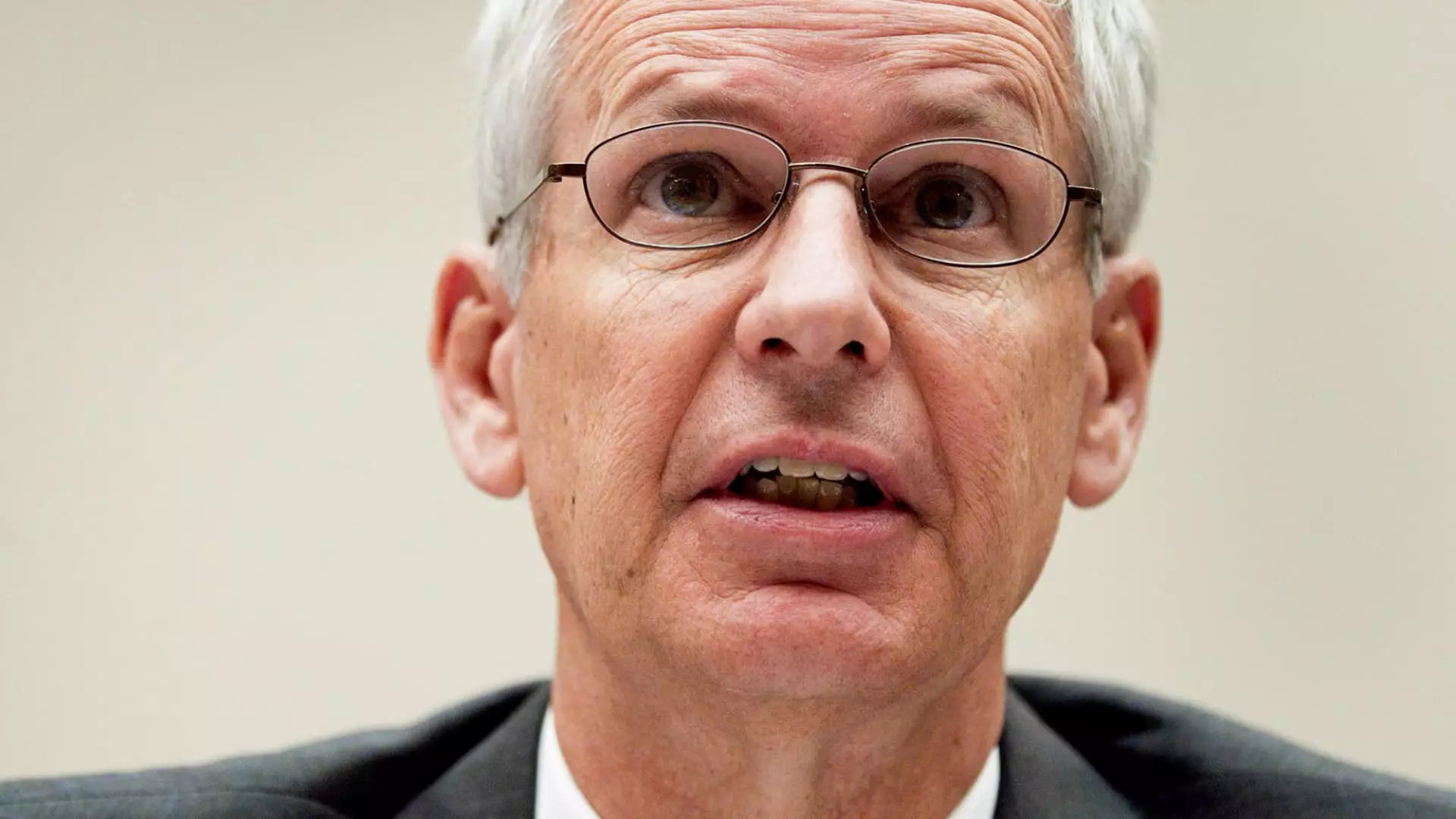The journey of Dish Network, once heralded as a formidable player in the pay-TV sector, has gradually unraveled into what can only be described as a series of disjointed narratives mirroring the plotlessness of its namesake, “Seinfeld.” The company’s cofounder, Charlie Ergen, drew an analogy between Dish’s strategic path and the quirky television series during a 2011 earnings call, suggesting that while the beginning may seem chaotic, all would eventually align. However, the culmination of this narrative ended in disappointment—a finale marked by a significant transaction devoid of the anticipated clarity or cohesion.
On the surface, the recent sale of Dish to DirecTV for a mere dollar amounts to more than just a financial maneuver. Coupled with the staggering $9.75 billion in debt, this deal represents a dramatic retreat from a once-promising trajectory. This sale, albeit contingent on regulatory approval, has left industry observers astonished as EchoStar, the parent company of Dish, witnessed its shares plummet by more than 11% post-announcement. This downward spiral has been a long time coming, revealing the cracks in a business model that failed to adapt in an evolving marketplace.
The Streaming Tsunami and Subscriber Exodus
Dish’s predicament cannot be attributed solely to market conditions or financial missteps; it has been a victim of a broader cultural shift towards streaming services. The ease and convenience provided by platforms such as Netflix, Hulu, and various others have rendered traditional cable and satellite offerings increasingly obsolete. During the peak of its operations, Dish, alongside DirecTV, saw their combined video subscriber numbers dwindle by an alarming 63% since 2016. This platform shift represents a seismic change in how consumers engage with media, and tragically, Dish found itself caught in a perfect storm without a lifeboat.
EchoStar CEO Hamid Akhavan contended in a recent CNBC interview that “the content-distribution industry has been on the decline.” This statement encapsulates the reality of a business that once thrived on the very model that it now struggles against. Their attempts at diversification—in ventures such as transitioning into a wireless carrier and acquiring Boost Mobile—illustrate a frantic search for relevance but ultimately failed to secure the necessary capital to sustain growth in either sector.
A Struggling Strategy: Unraveling Future Prospects
Reflecting on the chronology of events, it becomes evident that Dish’s strategy resembled a series of erratically strewn ideas with no central theme. Similar to the finale of “Seinfeld,” where plotlines converge without resolution, Dish’s ambitions to integrate its pay-TV platform with wireless services became a distraction rather than a cohesive strategy. Ergen, once an optimistic visionary, had often likened the company’s future pathways to extended fingers—each representing potential momentum into different sectors. However, this scattered approach has instead led to fragmentation, contributing to an operational deficiency that even aggressive spectrum acquisitions could not remedy.
The re-merger of EchoStar and Dish earlier this year was portrayed as a necessary consolidation in light of mounting debt obligations—particularly with a looming $2 billion payment. However, rather than signaling a new era of renewal, it felt more like an act of desperation to group together faltering assets under one umbrella. As consumer behavior continues to evolve, a question looms: is Dish capable of crafting a narrative that secures its relevance in a future dominated by nimble streaming alternatives? Or is it destined to spiral further into obscurity, like the unremarkable finale of a once-beloved series?
In contemplating Dish’s trajectory, one cannot help but draw parallels to the poorly received conclusion of “Seinfeld.” Both started with considerable promise, yet ended in a cascade of misalignments and missed opportunities. The frustration felt by stakeholders and consumers alike typifies a broader commentary on the challenges facing traditional media in an age of relentless technological progress and shifting viewer preferences. The story of Dish is one of potential squandered, a warning for companies that rely on nostalgia rather than innovation to retain relevance in an industry that is swiftly moving on without them. With this recent sale, Dish’s chapter may be closing with the same hesitance and disappointment that marred the final moments of its television counterpart.

Leave a Reply